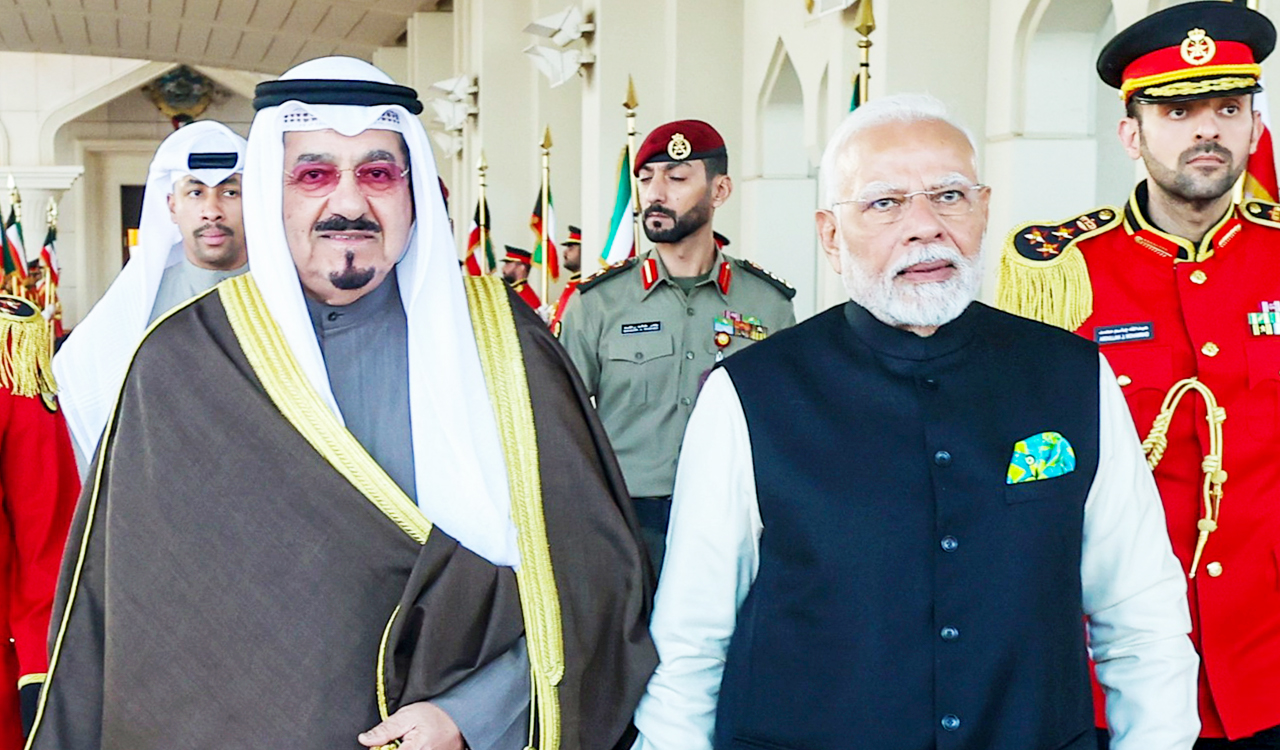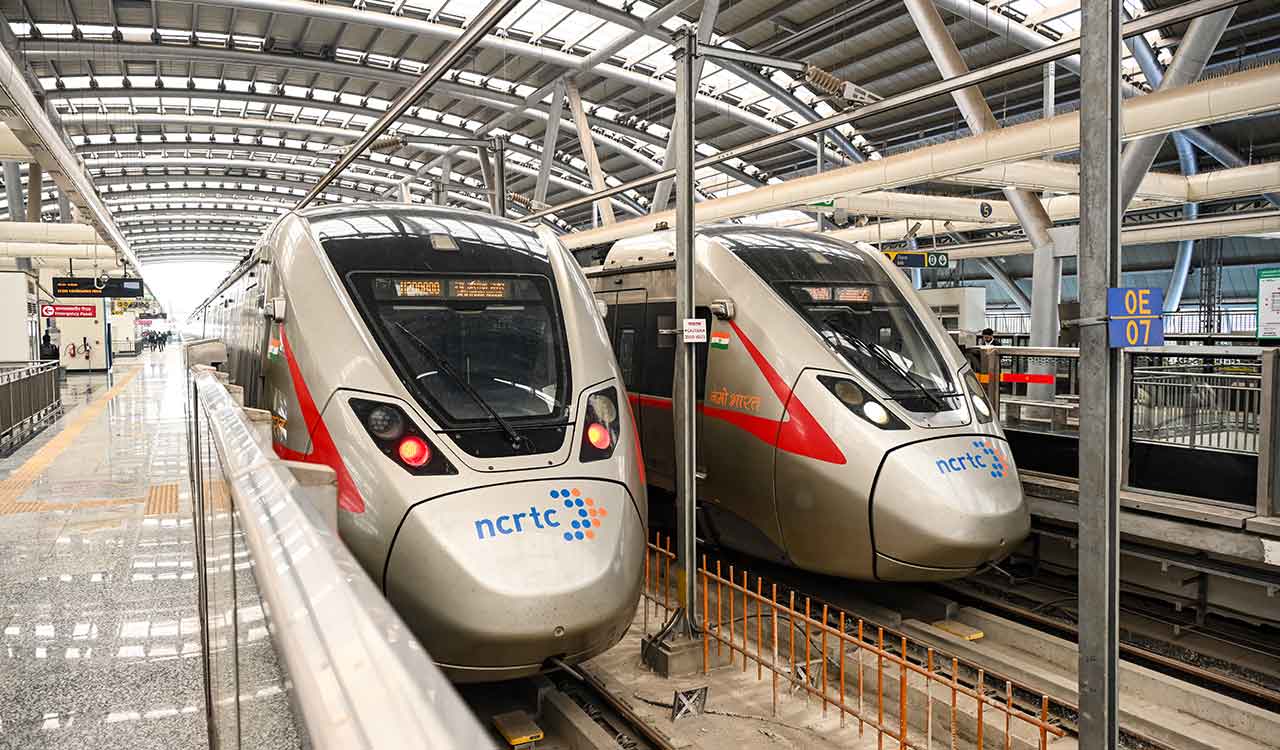Opinion: Going beyond oil with Kuwait
India’s ambition to strengthen ties with Kuwait is part of its ‘Extended Neighbourhood’ policy

Sanjay Turi
With its energy resources, significant Indian diaspora and geopolitical neutrality, Kuwait, an important member of the Gulf Cooperation Council (GCC), is essential to India’s West Asia policy. Prime Minister Narendra Modi’s recent visit highlights India’s ambition to become a major player in the region and its intention to strengthen ties with Kuwait as part of its ‘Extended Neighbourhood’ policy.
Also Read
It would not be wrong to say that Kuwait is one of the most important countries in West Asia from India’s geostrategic point of view. It would also not be wrong to argue that India’s foreign policy approach towards West Asia in the past was majorly oriented towards either engaging with oil trade or taking measures for the welfare of the Indian diaspora living there.
Three Perspectives
In recent times, India has completely transformed its foreign policy approach towards West Asia and started looking at these countries from three different perspectives. These are: economic engagements beyond oil, shared-security concerns of the West Asian countries and how it can capitalise on it, and create an impression that India takes West Asia very seriously and does not look at them only from the perspective of business. This is proved by the fact that Modi has made more than 20 visits to West Asia during his last two consecutive terms.
The combined investment of Saudi Arabia and the UAE of over $175 billion in India is an example of how the government has convinced dominant drivers of this region to invest in the country. This would also convince other countries in the region to engage with India through various dimensions of trade and communication.
Kuwait is geographically located in the trijunction of Saudi Arabia, Iran and Iraq. Kuwait historically has had a very different relationship with India. Apart from oil, Kuwait has always also explored other dimensions of trade, and that is what makes its relations with India different from other countries of West Asia which are on the lines of oil-related trade engagements.
Kuwait will be the next destination for Unified Payment Interface in the Gulf and India hopes to convince other countries in West Asia to accept UPI
India has always been one of the top tourist destinations for Kuwait. One of the most significant aspects of the decades-long bilateral relations between India and Kuwait can be defined by the fact that the Royal Al Sabah Family of Kuwait also owns a property in Mumbai, which they occasionally visit as their holiday destination.
Diplomatic Dilemma
However, we witnessed a diplomatic dilemma with Kuwait in 1990, when it was invaded by Saddam Hussain-led Iraq. At that point, India was extensively importing oil from both Kuwait and Iraq. India could not afford diplomatic tension with US-backed Iraq, and hence temporarily witnessed some instances of a rollercoaster in its relationship with Kuwait. However, post-reforms, with the active involvement of PV Narasimha Rao and Dr Manmohan Singh, several policies were brought to better its relationship with the Gulf countries, and gradually, India managed to balance its relationship with Kuwait too.
Today, the Indian diaspora constitutes 21% (30% of its total workforce) of Kuwait’s overall population. Probably, this number brought the attention of the government to engage with Kuwait through another dimension of bilateral relations. As per reports, the Indian diaspora living in Kuwait sent more than $2 billion in foreign remittances, which is more than 2.4% of the total remittances India received in 2021-22.
Although the political relations between India and Kuwait were in a deep freeze for several years post-Gulf War, other dimensions of engagement between the two countries somehow continued. After Indira Gandhi’s visit in 1981, the recent visit of PM Modi is the first by any Indian Prime Minister to Kuwait in the last 43 years. Apart from paving the way for exploring several strategic dimensions of relationships with Kuwait, Modi’s visit is also likely to provide us with an alternative to Iran as well as Saudi Arabia, as Kuwait has very good relations with these two regional rivals. India is engaging with the Gulf nation at a time when it is aiming to create a New Kuwait, coinciding with India’s vision of Viksit Bharat 2047.
Kuwait is also well aware of the fact that it cannot continue to be dependent on its oil industry, and has to diversify its economy beyond the oil and gas industry. India, by highlighting its global mission in renewable energy, has requested Kuwait to connect with its renewable energy projects by utilising the Sovereign Wealth Fund of Kuwait Investment Authority (KIA). India has also assured Kuwait that by using the Sovereign Wealth Fund, it would be running several clean energy projects in the entire Global South. This will additionally help Kuwait attract more Foreign Direct Investment (FDI). Henceforth, India has ensured to become a launchpad for Kuwait, which not only helps strengthen its own image globally but also helps Kuwait engage with other countries around the world.
Mediator in Middle East
Kuwait has always played a very significant role as a mediator in the Middle East for decades. For example, in 2017, it played an active in removing a blockade imposed by Saudi Arabia on Qatar and extensively advocated for a peace template in the region. This is what, in terms of common value, matches India’s foreign policy approach.
Besides, even after being an important member of GCC, Kuwait has a very good relationship with other Shia countries as well as a very tolerant attitude towards other non-GCC countries in the region. The Saudi-led GCC was established in the post-Iranian Revolution primarily to stop the spread of the idea of the Iranian revolution in the other Gulf countries. Therefore, extensively engaging with Kuwait not only provides us with an opportunity to strengthen our socio-economic relationship with it but also offers an alternative for Iran and Saudi Arabia to engage with the other players in the region without any hesitation of having any diplomatic dilemma in the minds of Indian foreign policy experts.
Another chapter in our bilateral dimension with Kuwait is the promotion of Digital Payment System. After UAE, Kuwait is going to be the next destination for Unified Payment Interface (UPI) in the Gulf. India hopes to convince other countries in West Asia to accept the UPI as their trustable payment system. Recently, after endorsing the BRICS payment system, a step towards de-dollarisation and against China’s vision of becoming an alternative to the dollar, India is slowly and steadily promoting its own payment system.
In view of these developments, Modi’s visit was a masterstroke for the revival of the political relations with Kuwait as well as for the Indian foreign policy approach towards West Asian countries.

(The author is a Doctoral candidate, Centre for West Asian Studies [CWAS], School of International Studies, Jawaharlal Nehru University, New Delhi)
Related News
-
Gold and silver prices dip amid profit booking as US dollar gains
4 mins ago -
Tension in Khammam as officials evict around 600 families living on Bhoodan lands
5 mins ago -
Shivamogga tense after Class 10 student dies trying to save friend during fight with boys
13 mins ago -
Family of three found dead in Amberpet; Police probe suspected family suicide
26 mins ago -
At 73, Dalip Tahil goes river rafting, raft capsizes in Ganga
27 mins ago -
Motivational speaker held for ‘attempt to sexually assault’ minor in Kerala
38 mins ago -
Unseasonal overnight rains remain active in Hyderabad and multiple Telangana districts
39 mins ago -
Man detained for murdering 13-year-old girl in Bikaner
44 mins ago




